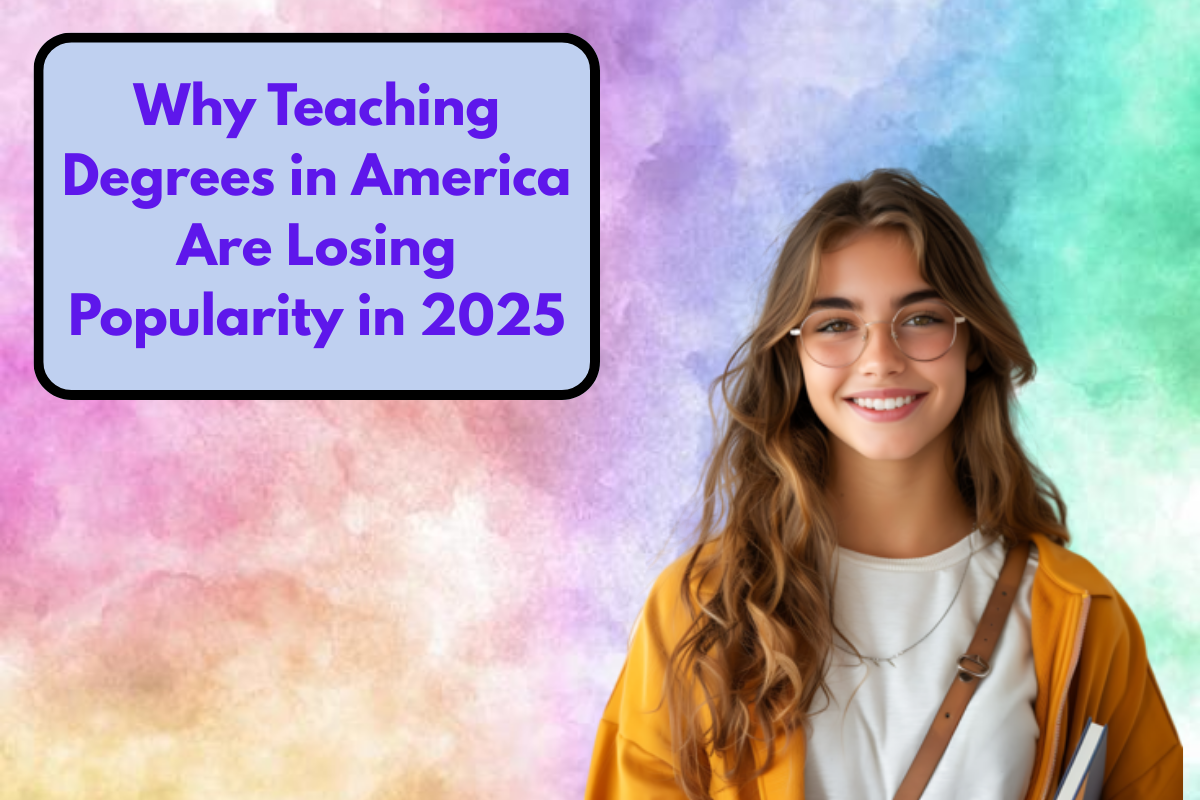For decades, teaching was considered one of the most respected and stable careers in the United States. However, in 2025, a surprising trend is emerging—fewer students are pursuing teaching degrees. Universities across the country are reporting declining enrollments in education programs, raising concerns about the future of the U.S. education system. What is driving this shift, and why are teaching degrees losing their appeal?
Rising Workload and Low Pay
One of the biggest reasons students are turning away from teaching degrees is the pay-to-workload imbalance. Teachers often face long hours filled with lesson planning, grading, and classroom management, yet their salaries remain far lower compared to professions requiring similar levels of education. As inflation and living costs rise in 2025, many students find teaching financially unattractive compared to fields like technology, finance, or healthcare.
Burnout and Job Dissatisfaction
Teaching is a career that requires passion, patience, and resilience. Unfortunately, high stress levels and increasing responsibilities have led to widespread teacher burnout. Larger class sizes, stricter testing requirements, and a lack of resources make teaching more demanding than ever. Reports show that new teachers often leave the profession within the first five years, which discourages young students from even considering a degree in education.
Competition From Alternative Careers
In 2025, students have more career choices than ever. Fields like data science, digital marketing, AI, and nursing offer higher salaries, greater flexibility, and faster career growth. Compared to these booming industries, teaching degrees are often seen as less rewarding both financially and professionally. Additionally, the rise of online education and private tutoring has created non-traditional teaching roles that don’t always require a formal degree in education.
Lack of Social Prestige
Once considered a highly respected profession, teaching in the U.S. has lost much of its social prestige. Teachers are often underappreciated despite their critical role in shaping the next generation. This lack of recognition makes many students hesitant to invest years of study into a field where they feel undervalued.
The decline in teaching degree enrollments in 2025 is a result of low pay, burnout, competition from other careers, and reduced social prestige. Unless systemic changes are made—such as improving teacher salaries, reducing workload stress, and restoring respect for the profession—the U.S. may soon face a teacher shortage crisis. For students weighing career options, teaching remains a noble calling, but it requires a stronger support system to become appealing again.
FAQ’s:
Q1. Why are teaching degrees less popular in 2025?
Due to low salaries, high workloads, burnout, and competition from better-paying careers.
Q2. Are teacher shortages affecting U.S. schools?
Yes, many districts are reporting difficulty hiring qualified teachers, especially in math, science, and special education.
Q3. Can teachers earn competitive salaries in America?
While some states pay well, on average teacher salaries remain lower compared to other professions requiring similar education levels.
Q4. What alternatives do students choose instead of teaching degrees?
Popular alternatives include careers in technology, healthcare, business, and data science.
Q5. How can teaching degrees become popular again?
By improving pay, reducing stress, increasing resources, and restoring the social value of teaching.
